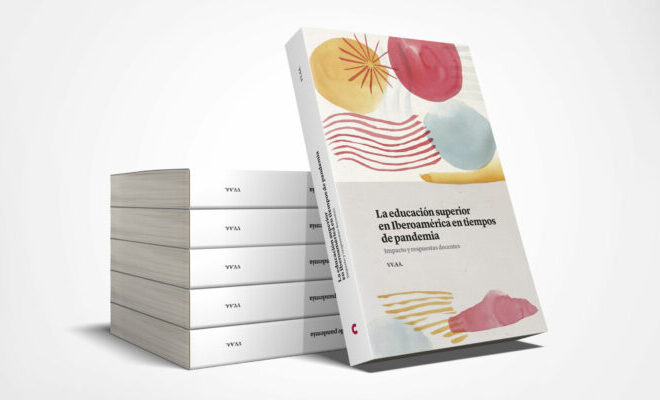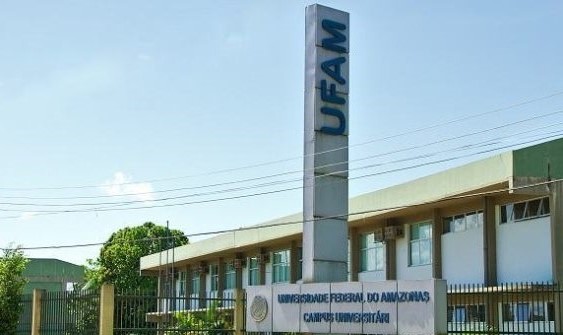COVID-19 in Haiti: The Challenges of Continuity in Education

 From July 2nd to the 30th 2020, the UNESCO Office in Port-au-Prince, Haiti, organized a series of webinars called Haïti face à la pandémie de COVID-19: la science ouverte et la recherche au service de la réponse (Haiti in face of the COVID-19 pandemic: open science and research at the service of the response), with the participation of scientific and political actors from the region.
From July 2nd to the 30th 2020, the UNESCO Office in Port-au-Prince, Haiti, organized a series of webinars called Haïti face à la pandémie de COVID-19: la science ouverte et la recherche au service de la réponse (Haiti in face of the COVID-19 pandemic: open science and research at the service of the response), with the participation of scientific and political actors from the region.
In the 3rd session planned for July, Thursday 16th 2020 at 10:00am (Haiti time), the webinar COVID-19 in Haiti: the challenges of continuity in education was held, with the participation, at the opening, of the UNESCO representative in Haiti, Pilar Alvarez-Laso; the director of the UNESCO International Institute for Higher Education in Latin America and the Caribbean, Francesc Pedró; the Director of the Agence Universitaire de la Francophonie (AUF), Saulo Neiva; the Governor of the Bank of the Republic of Haiti (BRH), Jean Baden Dubois; the Minister of National Education and Vocational Training, Pierre Josué Agénor Cadet, and it was chaired by Professor Franck Séguy. Also taking part in the session were the Director of the Information and Communication Technologies for Education Unit (MENFP) in Haiti, Ralphson Pierre; MENFP Councillor and Professor at the State University of Haiti, Adler Camilus; Professor Caroline Hudicourt of the Consortium des organisations du secteur privé de l’éducation COSPE (Consortium of Private Education Sector Organisations); and the Doctor in Educational Sciences and Researcher, Jacques Abraham.
Pilar Alvarez, UNESCO Representative in Haiti
During her speech, Pilar Alvarez assured that: “without education, governance will not improve”. According to the UNESCO representative in Haiti, we must ensure continuous, quality and reliable education during this period, strengthening solidarity and human fabric. She stated that “more than a billion students in the world, that is 60.5% of all students enrolled in pre-primary, primary, secondary and tertiary education, are out of school in 109 countries, as their institutions have closed their doors”. She therefore urged governments to analyze the resources available to maintain continuing education, thus avoiding the risk of exacerbating existing inequalities, especially for those students without access to connectivity. At the close of her presentation, Alvarez stated: “I would like to reaffirm UNESCO’s role as a catalyst and laboratory of social transformation”.
Agenor Cadet, Minister of National Education of Haiti
Agenor Cadet began his presentation by congratulating health and education workers around the world for their tireless support of life and knowledge in today’s constantly challenging societies. He also recognized the ingenuity of the Haitian population in finding ways to fight COVID-19, as they do with natural medicine. Haiti’s Minister of National Education announced that he welcomed the start of classes on Aug. 10 “because we have to guarantee the right to education under any circumstances. This is our current struggle. We have to avoid learning breaks”. According to Cadet, a new world must be re-founded. In this regard, he explained that the Ministry has created a digital platform and a YouTube channel to reduce inequalities in education.
Francesc Pedró, IESALC Director
Francesc Pedró began his speech by inviting universities to reflect internally on the quality and equity of higher education (HE). He argued that it is necessary to know if the experiences that arise from this crisis can be capitalized on for the benefit of courses that use technology. It is an “opportunity for a pedagogical renewal of HE that favors quality and equity”.
During his presentation, he quoted 4 strong ideas from the analysis carried out by IESALC on the effects of the pandemic on HE in Latin America and the Caribbean:
- “Institutions cannot limit themselves to purely academic content. Students have to take ownership over their education. Other competencies that are not evaluated by international organizations have to be considered, such as social-emotional competencies, that is to say the holistic aspects, in order to avoid returning to the restricted and elitist vision that is currently held”.
- “We should not wait until everyone has access to the Internet to go to the technologies. We have to guarantee mass access to the Internet. It should be considered as a right of men and women of the 21st century”.
- “We need to rely more on teachers”, so we need to invest in building the capacity of teachers to take more advantage of technologies and maximize student learning.
- “Technology must be a force for equality and an accelerator of development. There is a need to make effective use of virtual technology”.
In conclusion, the Director of IESALC said that it is necessary to invest massively in technologies and teachers: “our efforts in technologies will improve education”.
Saulo Neiva, Director of the Agence Universitaire de la Francophonie (AUF)
The director of the AUF began his presentation by stating that the AUF shares certain values and principles with UNESCO and that, since the beginning of the pandemic, the organization has been trying to transform the crisis into opportunities by creating new solutions such as distance learning courses, cooperative links and new partnerships.
He informed that the AUF has carried out several initiatives, such as the creation of its Digital Library which contains more than 11 million free resources; it has provided technical support to its members so that they can appropriate distance learning; it has provided courses on distance learning through the use of technologies to 13 countries; it has accompanied universities, mainly in Haiti, in their role as operators of local and global development, through programs that value the role of the university and projects in alliance with associative sectors on diverse themes.
In conclusion, Neiva stressed that the lessons of the pandemic are to work in synergy and cooperation so that initiatives can prosper, as well as to accelerate the use of technologies in education, considering the particularities of each country, such as the difficulty of access to the Internet. He concluded by congratulating Haiti, which is beginning a new phase in the field of education and hoping that the AUF will be able to contribute to this progress.
Jean Dubois, Governor of the Bank of Haiti
Dubois hailed the efforts of the Haitian government despite its limited resources, and stressed that “the pandemic shows us the limits of our digital (internet) and energetic (electricity) infrastructures. We have to invest in technology and its infrastructure instead of investing in construction. The world is changing very quickly”, he said.
“The pandemic can give us an opportunity to transform the traditional education system we have today” and thus allow future generations to have more confidence in both Haitian and international institutions. “It is essential to be able to rely more on our teachers”, said the Governor of the Bank of Haiti.
In conclusion, Jean Dubois said that “education is the basis of a society and that the man of tomorrow must have new skills based on 4 pillars: communication, critical and constructive sense, creativity and cooperation”.
Jacques Abraham, Doctor of Education and Researcher
Dr. Abraham stated that between 1980 and 2015, resources had been unequally distributed in Haiti, and therefore the country is experiencing social inequalities. According to the specialist, inequality in access to education and inequality in school success are the main types of social inequalities that exist in schools.
Ralphson Pierre, Director of UTICE of the Ministry of National Education and Vocational Training (MENFP) in Haiti
Ralphson Pierre explained the creation of Pr@tic, a platform of IT learning resources, created by the MENFP. It is an educational tool for the continuity of education in Haiti and was initiated before the COVID-19 pandemic to provide a learning option for students. Pr@tic is currently available on its website, via YouTube and has an application.
Adler Camilus Professor at the State University of Haiti and MENFP Advisor
For Professor Camilus, “there is a correlation between social exclusion and school exclusion, between socio-spatial and socioeconomic inequality and school inequality. Ten million students may be dropping out of school” as a result of the COVID-19 pandemic, he said.
Caroline Hudicourt, Professor at the Consortium of Private Education Sector Organizations (COSPE)
Hudicourt talked about the operation of schools in Haiti between 2019 and 2020. According to the teacher, “some of the schools worked for two and a half months and did not offer distance learning courses; in most cases they communicated through the Whatsapp platform, or by telephone” Also, in the wake of the pandemic, Hudicourt cited certain resulting difficulties such as the risk of losing students in difficulty, the considerable reduction of school days, the complexity of following up on distance courses, the increase in poverty, misery and violence, among other aspects.
She concluded by stating that some schools will not be able to reopen their doors soon, meaning that classes will not resume at the same time, and also stated that financial difficulties will continue to worsen with the economic crisis. However, she urged to take advantage of this moment to maintain the culture of distance work by alternating face-to-face and distance classes, to individualize the supply of services, to improve health conditions, to perfect distance techniques for both students and teachers, and to develop digital content at lower prices than printing and distributing books.
The 3rd session of the Open Science and Research in the Service of the Response Webinar ended with a series of questions and answers.
To watch the webcast of the webinar, please go to the UNESCO Haïti Facebook page.
RELATED ITEMS








